Egypt has been a magnetic destination for explorers, tourists, and traders for millennia with its ancient pyramids, grand temples, and the eternal Nile. Its pivotal position as the bridge between Africa and Asia has also made it a crossroads of civilizations, resulting in a rich tapestry of cultures that beckon visitors from all over the globe. You can read about things you need to know before going to Egypt. There is some useful information worth reading before planning your Egypt adventure.
Now, Let’s see if the travelers need visas and entry requirements for Egypt.
General Requirements for All Travelers
Whether you’re trekking through the Sinai desert, taking a relaxing cruise down the Nile, or conducting business in the heart of Cairo, there are a few universal requirements every traveler must adhere to when planning a trip to Egypt. Understanding and being prepared for these mandates will ensure your entry is as seamless as possible and lay the groundwork for a stress-free journey.
A valid passport with at least six months
A valid passport is one of the most fundamental requirements for entering many countries, including Egypt. But merely having a passport isn’t sufficient; its expiry date is pivotal. Your passport must have at least six months of validity remaining from the date you intend to enter Egypt. This regulation is primarily a precautionary measure countries take to ensure that visitors don’t overstay their visas unintentionally because of passport expiry. Before you even book your flight, it’s a good practice to check your passport’s expiration date and renew it if necessary.
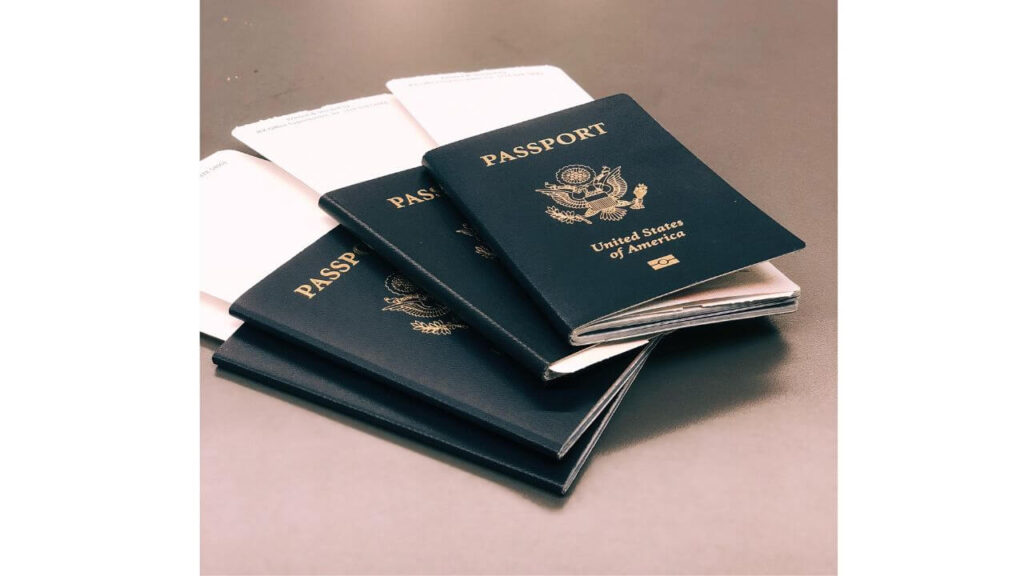
Completed arrival/departure card (often provided on the plane):
While in-flight entertainment and the view from your window seat can be captivating, don’t miss out on the arrival/departure card provided by the flight attendants. This form, which requires travelers to fill out basic information such as their name, passport details, destination address in Egypt, and the purpose of the visit, is a mandatory document for entry. Filling it out during your flight ensures you’re ready for immigration checks once you land, streamlining the process and saving you valuable time. Always carry a pen on board, and ensure that the details you provide on the card match those on your passport and visa.
Health and vaccination requirements
It’s no longer mandatory for travelers to have COVID-19 vaccination to enter Egypt. The country has lifted all pandemic-related travel limitations. This encompasses requirements for COVID-19 tests and vaccinations.
However, travelers are strongly encouraged to complete their coronavirus vaccination, given the potential risks of the virus.
However, there are some vaccines that the WHO and CDC recommend to have before traveling to Egypt. Before traveling, check your vaccination card if you are updated with routine vaccinations like Chickenpox (Varicella), Diphtheria-Tetanus-Pertussis, Flu (influenza), Measles-Mumps-Rubella (MMR), Polio, and Shingles.
From a routine vaccine, travelers should have vaccines for Hepatitis A and Typhoid.
Vaccines from certain circumstances that travelers should have for traveling to Egypt are Yellow fever, Hepatitis B, and Rabies.
Tourist Visa
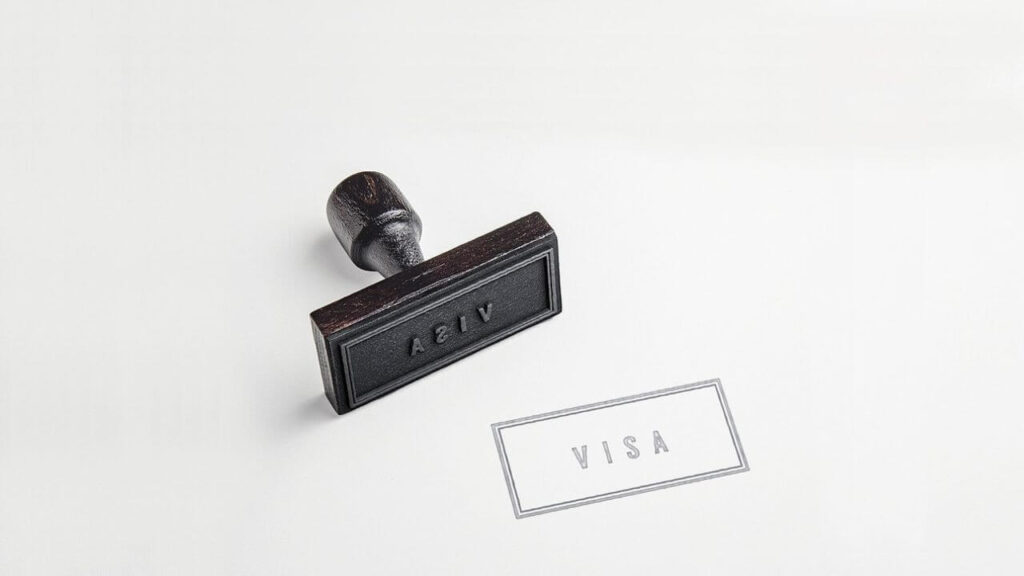
Types of Tourist Visas
Single-entry visa
As the name suggests, this visa allows you to enter Egypt once. It’s ideal for tourists planning a straightforward visit without exiting and re-entering the country.
Multiple-entry visa
If your travel plans include leaving and re-entering Egypt multiple times (for instance, if you’re visiting neighboring countries in between), you’ll need a multiple-entry visa.
Duration and Validity
Both the single-entry and multiple-entry tourist visas are generally valid for 90 days from the date of issue, with a maximum stay duration of 30 days in Egypt.
Application Process
Online e-Visa
One of the most convenient methods for many travelers. You can apply for an e-visa on Egypt’s official e-visa portal, upload the required documents, and pay the fee online. The approval is sent electronically, which you should print and carry with your passport.
On-arrival visa
Available for citizens of several countries, including the U.S., this visa can be obtained directly at designated international airports in Egypt, like Cairo International Airport. It’s a straightforward process, but having the exact change in USD can expedite it.
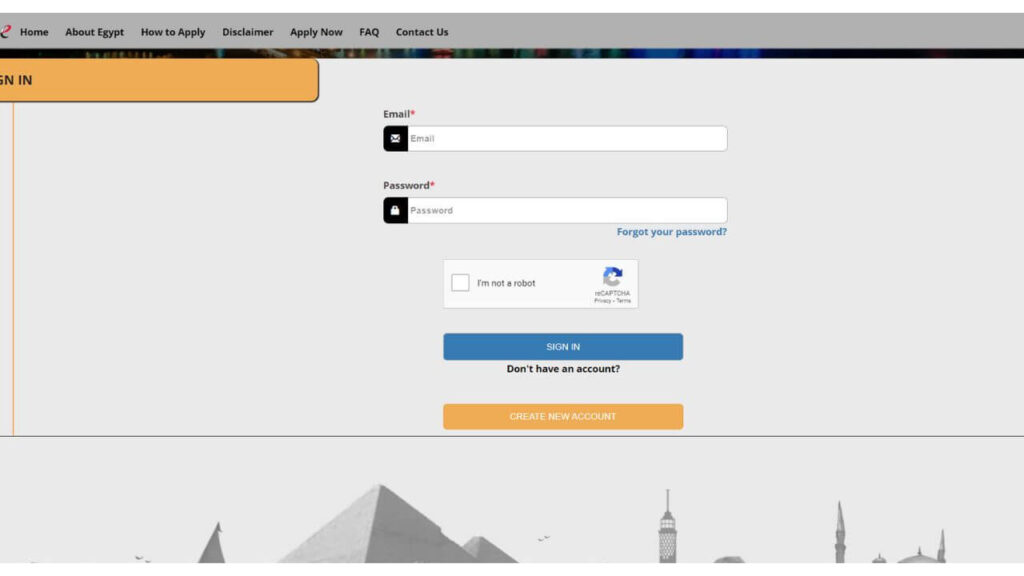
Visa from the Egyptian consulate or embassy
If you prefer or if your nationality requires it, you can apply for a tourist visa at an Egyptian consulate or embassy in your home country. This process can be lengthier as it involves submitting your passport and other required documents and waiting for the visa to be processed and stamped into your passport.
Fees and Charges
Fees can vary depending on the type of visa and where you’re applying from. A single-entry visa can cost around $25, and a multiple-entry visa about $60. It’s always advisable to check the current fee structure on the official website or with the consulate.
Special Considerations for Certain Nationalities
While many nationalities can easily obtain an e-visa or visa-on-arrival, some might face restrictions or additional requirements. For instance, citizens of certain countries must apply through an embassy or consulate and cannot obtain a visa on arrival.
It’s crucial to consult the official Egyptian consulate or embassy website to verify visa requirements based on your nationality. This ensures you have the most up-to-date and accurate information.
Business Visa
Necessary Documentation
Passport: It must be valid for at least six months before you enter Egypt.
Completed visa application form: This can usually be downloaded from the official website of the Egyptian embassy or consulate in your country.
Recent passport-sized photographs: The number and specifications can vary, so it’s best to check the current requirements.
Invitation letter: An official letter from the Egyptian company or business entity you’ll be visiting. This letter should detail the purpose of your visit, the duration of your stay, and details about the inviting company, such as their address and contact details. It’s recommended that the letter be on the company’s official letterhead.
Proof of sufficient funds: This could be in the form of bank statements or a letter from your bank.
Hotel reservations or accommodation details: This serves as proof of accommodation during your stay.
Travel itinerary: If applicable.
Any other relevant supporting documents, depending on the nature of the visit or specific requirements of the Egyptian consulate or embassy.
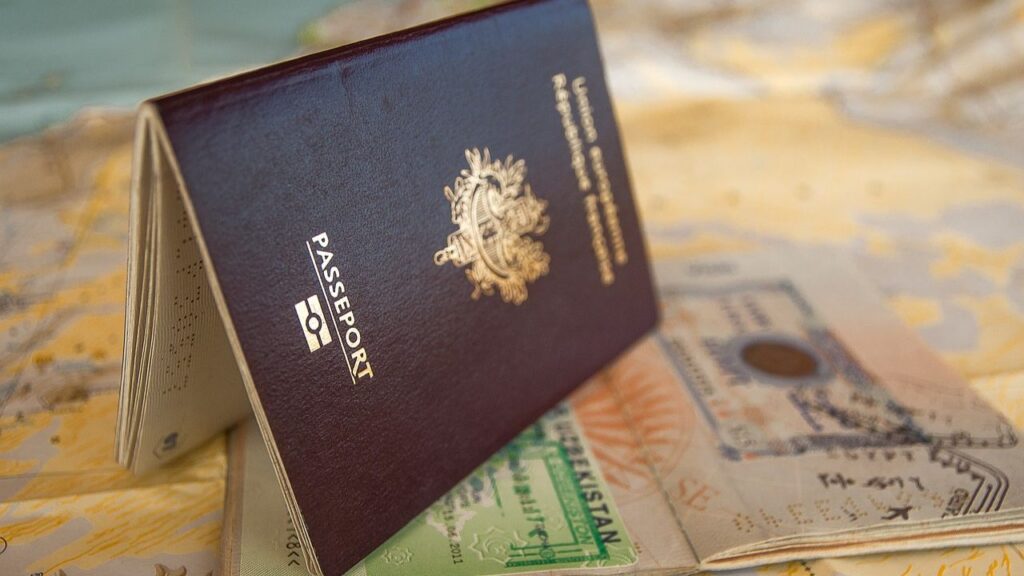
Duration and Validity
Typically, business visas are short-term, ranging from single entry (which may allow a stay of 30 days) to multiple entries. The duration and validity might vary based on the purpose and nature of the business visit.
Extensions can be obtained in Egypt if necessary, but applying before the visa expires is essential.
Application Process
Obtain and complete the visa application form from the nearest Egyptian embassy or consulate.
Gather all the necessary documentation.
Submit the visa application form along with the required documents to the Egyptian embassy or consulate, either in person or via mail, as specified by the embassy.
Attend an interview if required. Some embassies or consulates might request an in-person interview as part of the visa approval process.
Once approved, you’ll receive a visa stamp or sticker in your passport.
Fees and Charges
The fee for a business visa to Egypt can vary depending on your nationality and the duration/type of visa you’re applying for.
It’s best to check the most recent fee structure on the official website of the Egyptian embassy or consulate in your country or by directly contacting them.
Note: This is a general overview, and specifics can vary based on the applicant’s nationality and other factors. Before making any arrangements or submitting any documents, always refer to the most up-to-date guidelines provided by the Egyptian embassy or consulate in your jurisdiction.
Transit Visa
Definition and When It’s Required
A Transit Visa allows travelers to pass through the territory of Egypt en route to a different destination.
This visa is typically required if a traveler needs to leave the airport for any reason, such as an extended layover or overnight stay, or if they need to change airports.
Those who remain in the airport’s international transit area without passing through immigration control might not need a Transit Visa. However, it’s always best to verify beforehand.
Application Process and Fees
Application Process
Obtain and complete the visa application form from the nearest Egyptian embassy or consulate.
Provide relevant documentation, like an onward ticket, showing that Egypt is just a transit point in your journey.
Submit the visa application form along with the required documents to the Egyptian embassy or consulate, either in person or by mail, as specified.
Some consulates or embassies may require an interview or additional documentation.
Fees
The fee for a Transit Visa can vary. It’s best to refer to the Egyptian embassy or consulate in your country for the most accurate and up-to-date fee structure.
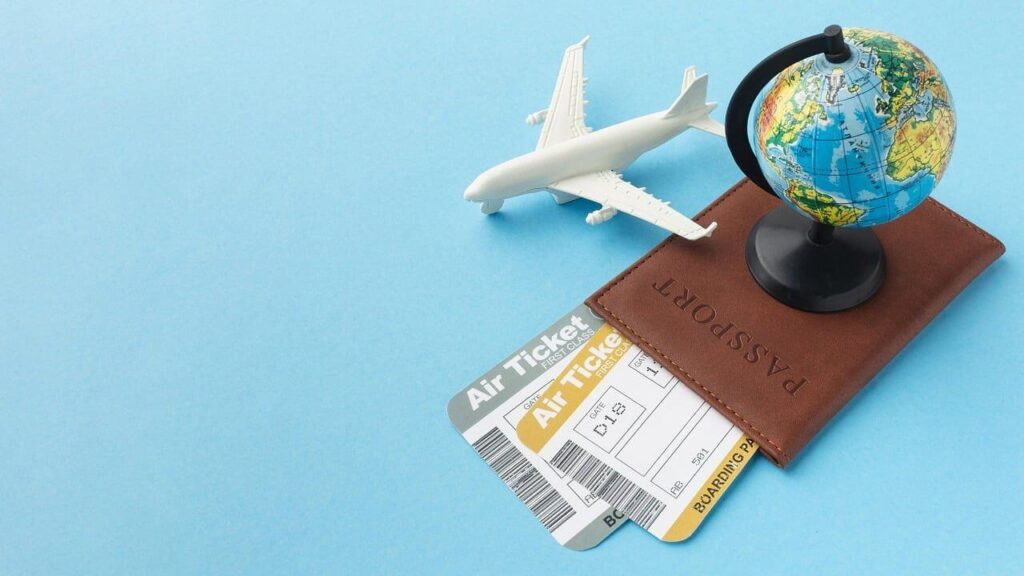
Exemptions and Special Circumstances
Nationals from certain countries might be exempted from Transit Visas. Always check the latest visa requirements based on your nationality.
Travelers who have a layover in Egypt but will not leave the international transit area of the airport might not need a Transit Visa. However, rules can vary based on your nationality and specific circumstances.
Certain exemptions might also apply if you’re traveling to or from Sinai Resorts.
If you’re arriving in Egypt on a cruise ship, you might have different visa requirements or exemptions, especially if the stay is short and the visit is part of a cruise tour.
Some organized tours or airline partnerships might have arrangements with the Egyptian government for simplified transit or temporary entry procedures.
Note: Always ensure you have the most current information by checking with the Egyptian embassy or consulate before your journey. Transit visa rules can vary based on several factors, including the traveler’s nationality, the length of the stay, and the purpose of the visit.
Special Entry Permits
Certain regions in Egypt, like some parts of Sinai, are considered restricted areas and require special permissions or permits for entry, especially for foreign nationals. The Sinai Peninsula holds both strategic importance and sensitive border regions, restricting its specific parts for general public access.
Areas Typically Requiring Special Entry Permits
- Parts of the Sinai Peninsula near the borders with Israel and Gaza.
- Certain military zones and other strategic areas.
- Some areas of archaeological or historical significance might also require special permissions.
Application Process and Required Documentation
Where to Apply: Applications for a Special Entry Permit can typically be made at the nearest police station to the restricted area or at specific governmental agencies overseeing that region.
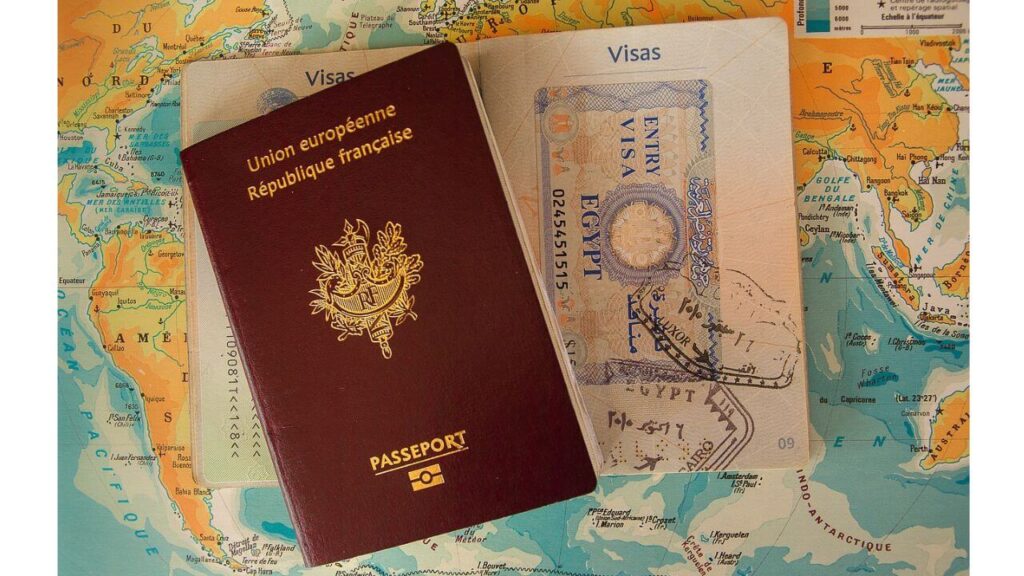
Required Documentation
- Passport: Must be valid for at least six months beyond the intended date of entry.
- Completed application form: Detailing the reasons for requesting access to the restricted area.
- Recent passport-sized photographs: The number and specifications can vary, so check the current requirements.
- Detailed itinerary: This should specify the locations you intend to visit, the dates, and the reasons for your visit.
- Letter of Invitation or Purpose: If you’re visiting a specific organization individually or for a particular event in a restricted area, a letter detailing the purpose of your visit can be helpful.
- Proof of accommodation: If applicable, details of where you’ll be staying in the restricted area.
Any other supporting documents that can bolster the reason for your visit, such as event registrations, organization affiliations, etc.
Once the application is submitted, there may be a waiting period during which the relevant authorities will review your request. In some cases, interviews or additional documentation might be required.
Upon approval, you’ll be issued a Special Entry Permit, which should be carried with you at all times while in the restricted area.
Important Considerations
Duration of Permit: The duration of these special permits can vary based on the purpose of the visit and the discretion of the issuing authority.
Travel with a Group: In some cases, it might be easier to obtain a permit if you’re traveling as part of an organized tour or with a group, as the tour operator might facilitate the permit process.
Safety Concerns: Some restricted areas might have security or safety concerns. Always ensure you’re informed about the current situation, and heed any travel advisories from your home country or international organizations.
Overstay and Violations
Overstaying a visa can lead to complications, fines, and even legal actions in many countries, including Egypt. It’s always recommended to stay informed and take action if you realize you’ve overstayed.
Consequences of Overstaying a Visa
Fines: Travelers who overstay the duration of their visa will typically be required to pay a fine. The amount of the fine can vary based on the duration of the overstay.
Travel Restrictions: Overstaying might result in restrictions on returning to Egypt.
Detention: In extreme cases or prolonged overstays, there’s a risk of detention by immigration authorities.
Blacklisting: Severe violations might result in being blacklisted, which would prevent re-entry into Egypt for a specified period.
Exit Delays: If you’ve overstayed, you might face delays at the airport or border crossing as authorities process your violation. This could potentially lead to missing flights or other travel plans.

Fines and Potential Legal Actions
Accumulated Fines: Fines tend to accumulate for each day of overstay. The exact amount can vary and should be checked with local immigration offices.
Legal Proceedings: In addition to fines, those who overstay for a significant duration might face legal proceedings, which could include court appearances.
Deportation: While less common for short overstays, there is a possibility of deportation for more extended overstays or repeated violations. A re-entry ban for a specific period could accompany deportation.
Process of Regularization or Departure
Regularization: If you realize you’ve overstayed but have genuine reasons (e.g., medical emergencies, unforeseen circumstances), you might approach the local immigration office to regularize your status. This could involve explaining the situation, presenting supporting documents, and potentially paying a fine.
Departure: If regularization isn’t possible or you choose to leave:
- Ensure you have funds to pay the overstay fine.
- Arrive at the airport or border crossing with plenty of time to spare, as handling the overstay might cause delays.
- Pay any necessary fines at the immigration counter.
- It’s a good practice to keep receipts or documentation of any fines paid for future reference.
Returning to Egypt: If you plan to return to Egypt after an overstay:
- Ensure you’ve settled all fines and legal obligations.
- Be prepared to explain the circumstances of your previous overstay when applying for a new visa or upon entry.
Note: It’s always recommended to avoid overstays. If you think you might overstay, even by a day, it’s best to approach local authorities or an immigration lawyer for guidance. The exact consequences and processes can change over time, so always refer to the most up-to-date guidelines provided by Egyptian immigration authorities or consult a legal expert in immigration matters.
Tips for Travelers
Double-check Visa Requirements: Always verify visa requirements specific to your nationality before traveling. These can change, and assumptions might lead to complications.
Keep Copies of Important Documents: Always have digital and physical copies of essential documents like your passport, visa, travel insurance, and itineraries. This can be invaluable in case of loss or theft.
Follow Local Laws and Regulations: Familiarize yourself with local customs, laws, and regulations. Respect them to ensure a smooth and hassle-free stay. Ignorance of the law is rarely accepted as an excuse.
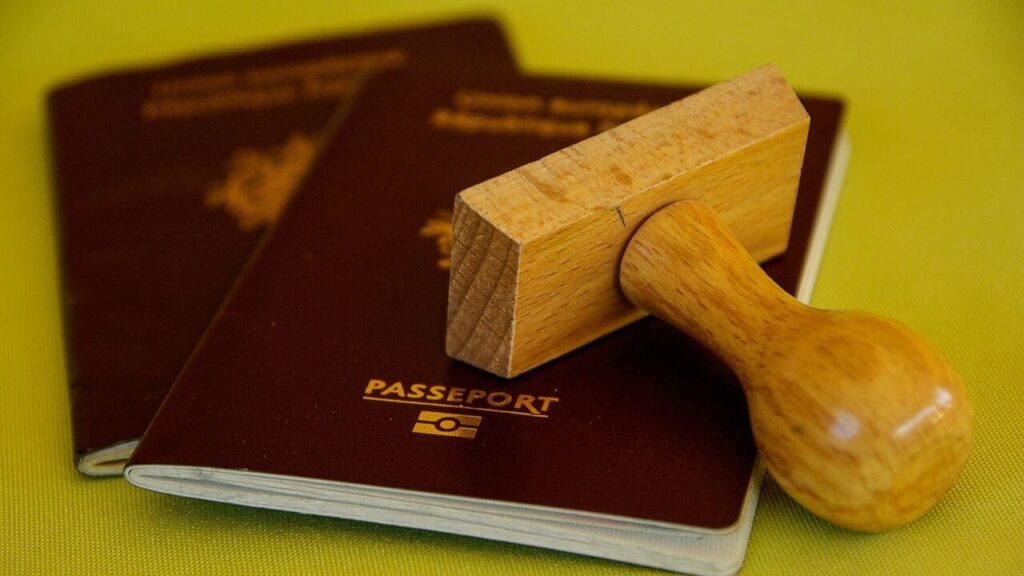
Additional Notes
Always keep a copy of your passport and visa/e-Visa when traveling in Egypt.
Overstaying the duration of your visa can result in fines or other legal consequences.
The Sinai Peninsula has separate entry requirements. If you’re traveling beyond the coastal areas, you might need a special permit.
You can find more information on the U.S. DEPARTMENT of STATE — BUREAU of CONSULAR AFFAIRS website. We also created a complete Packing Guide for Egypt.
Travel safely!




